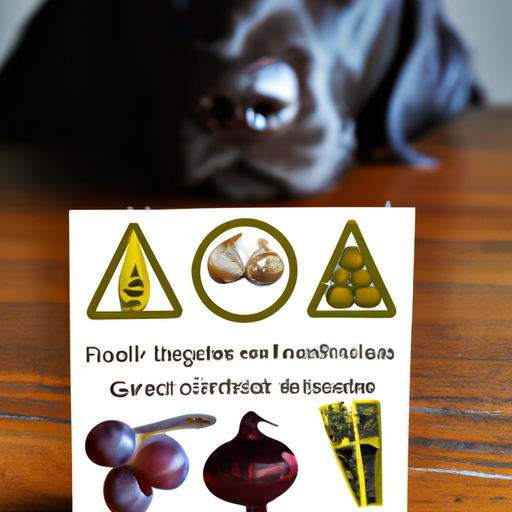As a loving and responsible caregiver, you’re likely always on the lookout for ways to ensure your furry friend is healthy and happy. One of the simplest ways to do so is by feeding them a balanced diet. However, it’s crucial to remember that not all foods that are safe for human consumption are safe for dogs. In fact, some foods can even be fatal. In this article, we’ll take a look at what food not to give dogs to keep them safe.
Table of Contents
Key Takeaways
- Dogs have different dietary needs compared to humans.
- Certain foods can be harmful or even fatal to dogs.
- Always consult with a vet before changing your dog’s diet.
Understanding Canine Nutrition
Before we delve into the foods you should avoid feeding your dog, it’s important to understand the basics of canine nutrition. Dogs, like humans, require a balanced diet to thrive. But their needs are different from ours. In general, dogs need a mix of proteins, carbohydrates, fats, vitamins, and minerals.
Canine nutrition is a complex topic, and it’s always beneficial to consult with a veterinary nutritionist to understand the best diet for your dog’s specific needs and life stage. If you’re interested in learning more about canine nutrition, you might also find this guide from One Top Dog helpful.
Foods to Avoid
Although dogs are known for their ability to eat just about anything, there are certain foods that they should never consume. Let’s take a look at some of them.
1. Chocolate
Chocolate is perhaps the most well-known food that is toxic to dogs. This is due to a compound called theobromine, which can cause a variety of symptoms ranging from vomiting and diarrhea to seizures and even death.
2. Grapes and Raisins
Grapes and raisins can cause kidney failure in dogs. Even a small amount can make a dog sick. The exact cause of the toxicity is not known, but it’s best to avoid these fruits.
3. Alcohol
Alcohol has a similar effect on a dog’s liver and brain as it does on humans. But it takes a lot less to harm them. Even a small amount can lead to significant intoxication.
4. Caffeine
Caffeine is found in coffee, tea, and other beverages. It can be very harmful to dogs, leading to restlessness, rapid breathing, and heart palpitations.
5. Onions and Garlic
Onions and garlic contain compounds that can damage a dog’s red blood cells, leading to anemia. This includes all forms of these foods, whether raw, cooked, or in powder form.
6. Xylitol
Xylitol is a sugar substitute found in many sugar-free products, including gum, baked goods, and toothpaste. It can cause insulin release in dogs, leading to liver failure.
7. Avocado
Avocado contains a toxin called persin that can cause vomiting and diarrhea in dogs.
8. Macadamia Nuts
Macadamia nuts can cause weakness, vomiting, and tremors in dogs.
This is not an exhaustive list, but it covers some of the most common foods that are harmful to dogs. If you’re unsure whether a certain food is safe, it’s always best to consult with your vet.
For a more comprehensive list of foods to avoid, check out this resource on One Top Dog.
FAQs
Q: Can I give my dog milk?
A: Some dogs are lactose intolerant, which means they can’t digest lactose in milk. This can lead to gas, diarrhea, and vomiting. It’s best to avoid giving your dog milk and dairy products unless your vet has said it’s okay.
Q: Is it okay to feed my dog raw meat?
A: Raw diets can be risky for dogs because they can be contaminated with bacteria like Salmonella or E. coli. Cooked meat is usually a safer choice. If you’re considering a raw diet for your dog, it’s important to consult with a vet first. Here’s a detailed post on One Top Dog about the risks and benefits of raw diets.
Q: How often should I feed my dog?
A: This can vary depending on your dog’s age, size, and overall health. In general, puppies should eat three to four times a day, while adult dogs can eat once or twice a day. It’s best to consult with your vet to determine the right feeding schedule for your dog.
Remember, you play a significant role in your dog’s health and wellbeing. By understanding what food not to give dogs, you can keep your furry friend safe and happy for many years to come.



